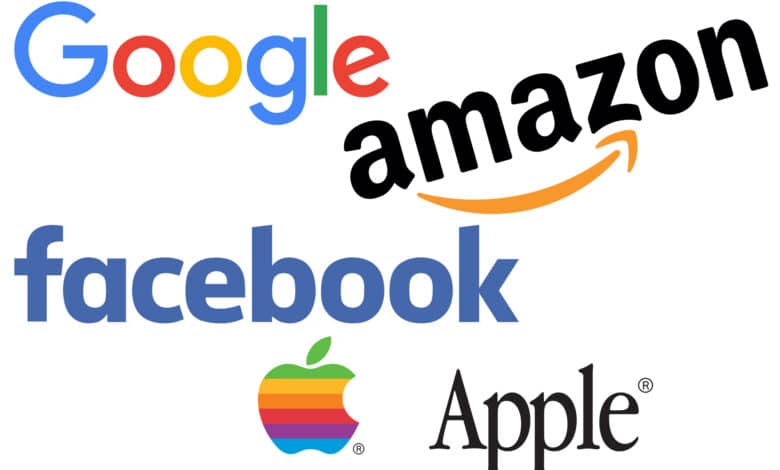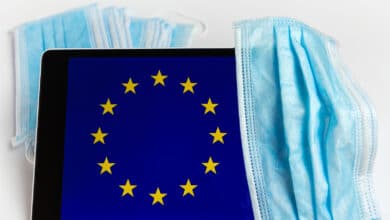
The EU and U.S. tech companies just can’t seem to get on the same page. Especially in the area of data protection law, corporations like Apple, Amazon and Google are a red rag to the Union states. Now, agreement has finally been reached on a new law that is intended to limit the scope of the “big players” from the United States and provide clarity.
Stricter rules for Amazon, Google and Apple
Regularly, the big tech corporations from the United States come into conflict with the EU. In addition to data protection law, competition law is also a relevant point of friction. In view of the undoubted market-leading position of some IT companies from the USA, this seems quite appropriate. Accordingly, after months of discussions within the Commission, agreement has now been reached on the so-called Digital Markets Act. This is intended to create a fairer market for competitors, but also for consumers.
“An end to ever-increasing dominance”
Among others, Andreas Schwab (CDU) commented on the regulations of the new DMA. The MEP doesn’t exactly stack the deck when he says:
“This agreement ushers in a new era of tech regulation worldwide”
What exactly he means by that seems clear, at least in theory. After all, the new Digital Markets Act is intended to ensure that the market sovereignty of tech corporations is brought back down to earth from the United States. Schwab continues to say in this regard:
“The Digital Markets Act puts an end to the ever-increasing dominance of big tech companies. Now digital companies must show that they also allow fair competition on the Internet.”
Finally taking punishment seriously
It’s not as if the EU doesn’t take action against corporations like Meta or Google for violations of the GDPR or competition law. However, the sanctions are often only economic in nature and usually only peanuts for the corporations. The DMA is intended to change this. For example, the catalog of measures should also include an entire resolution of large corporations. This could ensure that large tech companies do not even try to swallow up many small companies. Meanwhile, criticism is coming from the companies affected. Apple in particular is not exactly pleased about the DMA. The U.S. company is not only complaining that the distribution of apps and other intellectual property could be made more difficult.
On top of that, the company from California complains about too little data protection for its users. What may sound like understandable criticism at first glance is almost a farce in detail. Apple alludes to its questionable ecosystem here. In the App Store, the company demands sometimes horrendous sums from app developers when an app is purchased or an in-app purchase is made. Thanks to the DMA, members of the so-called “Coalition for App Fairness” can now breathe a sigh of relief. They campaigned for fair distribution of apps and associated additional content. Among others, well-known companies like Epic Games belong to the coalition. They were also the ones who instigated the dispute over Apple’s ecosystem.
But it’s about time
The new regulations probably seem historic primarily because the last comparable specifications for the Internet were almost twenty years ago. At that time, however, the EU was dealing with an Internet that can hardly be compared to today’s World Wide Web. In particular, the fast pace and sheer size of the Internet make it necessary to establish secure and generally applicable rules here as well. Otherwise, the Internet runs the risk of turning into a lawless space. It is not necessarily only the lack of regulations that has led to this state of affairs. Rather, there has been a lack of a transparent roadmap that can be consulted when a violation of competition law is in the offing. However, conventional competition law often does not really get you very far on the World Wide Web. This makes the creation of the Digital Markets Act all the more important.
Small companies need not fear
When the first copies of the DMA began to circulate, even smaller companies feared for their economic future. After all, some of the regulations were worded in a way that was misleading and steered against their true purpose. If one takes a look at the companies to which the DMA applies, it quickly becomes clear that these fears are not justified. For example, it is not enough to be able to show enough users on one’s own website. On top of that, a company that falls under the DMA must be able to report at least 7.5 billion euros in sales per year.
Alternatively, it must have capital of at least 75 billion euros. But where is the connection to the Internet, some may ask at this point. In addition to the economic requirements, there must also be a certain amount of traffic. This includes, for example, at least 45 million active users. Consequently, it quickly becomes clear that small companies need not be afraid of having to feel negative consequences of the DMA. European platforms such as Zalando or Etsy complained a few months ago about possible consequences of the DMA.
Users will also benefit
The new givens and bans on big-tech corporations don’t just offer many benefits to small businesses. We as end users also benefit. In particular, the new freedom of choice is of great benefit. One example is certainly the new regulations for big messengers like WhatsApp. Meta’s chat app must also allow communication with other messengers in the future. This means that WhatsApp users will be able to communicate with others who don’t even want to install the program themselves. How and when the whole thing will be implemented, however, is still up in the air. So far, the only thing that is certain is that a corresponding function for group chats is to come in the near future.
DMA must still be approved
There is a drop of bitterness for friends of data protection. There is probably no place for a ban on personalized advertising in the catalog of regulations. However, this would not only have been bad news for the tech companies, but also for the advertising companies. The DMA is certainly not likely to cause the chief executives of tech companies in the U.S. to jump for joy. However, the companies still have a little time to adapt their own market strategy to the EU. The Digital Markets Act has not yet taken effect. It must first be approved by the EU Council and the Parliament.



